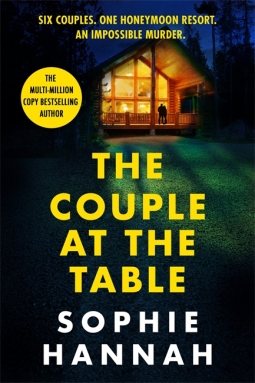First published 1924 - Christie’s fifth book, fourth novel, and the first “standalone”
story not featuring any series characters (though it does introduce the occasional
character of Colonel Race). People at the time were disappointed at the lack of
Poirot, already a popular figure.
Good title?
Well, it initially had me visualising David Tennant as the Tenth Doctor, which is
obviously not what Christie had in mind, unless she herself had a time machine.
It’s ok, as a title. Who is the man, one wonders? What has he done to deserve
to be in the title? Why is his suit brown? Etc.
Plot:
Young Anne Beddingfeld’s life with her academic father - "one of
England's greatest living authorities on Primitive Man" - has been less
than thrilling so far, but she longs for adventure:
"I yearned for adventure, for love, for romance, and I seemed
condemned to an existence of drab utility."
Indeed, Anne is a remarkably free spirit (she's not like other girls),
thriving on passion and danger, both of which are in short supply in Little
Hampsley. Her father's death allows Anne the opportunity to be let loose on the
world, and a chance encounter on a station platform, potentially linked to a
murder, soon see her aboard the Kilmorden Castle ship heading for Cape Town.
As Agatha herself had travelled to South Africa on the similarly named
Kildonan Castle, we may suppose that she knows what she’s talking about here,
though her journey was probably less eventful than Anne’s. The larger than life
character of Sir Eustace Pedler, whose journals make up part of the narrative,
is based, according to Laura Thompson's biography, on a Major Belcher, a bit of
a nightmare for whom Agatha nevertheless had a sneaking fondness.
There’s some business about stolen diamonds, and a shadowy Mr Big
(another one) but the details of the plot are probably less riveting than the
general adventure and romance of it all, though the identity of Mr Big
(confusingly codenamed "the Colonel", as there's another Colonel in
the story though nobody ever really thinks it's him) may surprise you - it did
me.
Speaking of which, Colonel Race ("a tall, soldierly-looking man
with dark hair and a bronzed face... I put him down as one of the strong,
silent men of Rhodesia") is probably the dullest of Christie’s recurring
characters; indeed, of all the characters in the book, he's probably the one
about whom I can least imagine a reader thinking "ooh, I hope we see him
again!". Characters like Sir Eustace Pedler, Suzanne Blair and Anne
herself would all be more worthy of a reappearance.
Arriving in South Africa, Anne finally feels her craving for travel and
adventure is being fulfilled:
"I don't suppose that as long as I live I shall forget my first
sight of Table Mountain.... It made me catch my breath and have that curious
hungry pain inside that seizes one sometimes when one comes across something
that's extra beautiful. I'm not very good at expressing these things, but I knew
well enough that I had found, if only for a fleeting moment, the thing
that I had been looking for ever since I left Little Hampsley. Something new,
something hitherto undreamed of, something that satisfied my aching hunger for
romance."
"This is South Africa," I kept saying to myself
industriously.... "You are seeing the world. This is the world. You are
seeing it. Think of it, Anne Beddingfeld, you pudding-head. You're seeing the
world."
It's an emotion we can imagine the young Agatha herself experiencing.
Anne Beddingfeld is an engaging character, if a little too addicted to
danger (the story is a rollercoaster of kidnappings and boppings on the head
and mysterious packages dropped through portholes in the middle of the night),
and there's plenty of humour both in her narrative and that of Sir Eustace, who
is an MP suffering from a plague of secretaries (he has three at various
points).
Acceptable in the 20s?
South
Africa is a remarkably white sounding place - Anne interacts little with anyone
who isn't white and their existence barely registers in the story bar a few
references to "natives”, who lack names or personalities. I think the only
one dignified with a name is Batani, who helps look after Anne when she is
incapacitated, and is referred to thus:
"Batani hovered about, counting no more than a dog might have
done."
So that's nice.
A murdered woman is described as
"the kind of woman who deserved to die. Men do all sorts of
questionable things in order to get rich, but women shouldn't pretend to be in
love when they aren't for ulterior motives."
I don't think they deserve to actually die for it, though, Anne. Double
standards much?
Leaving aside these deeply jarring moments, it's a good yarn, firmly in
the adventure-romance category - while many of Christie's books have an element
of romance, it's perhaps most pronounced here and is fairly strong stuff at
times:
"Damn your French frocks." [says Anne's love interest]
"Do you think I want to put frocks on you? I'm a damned sight more likely
to want to tear them off you."
Fruity stuff for 1924!
Next up: The Secret of Chimneys. No idea what that's about.












